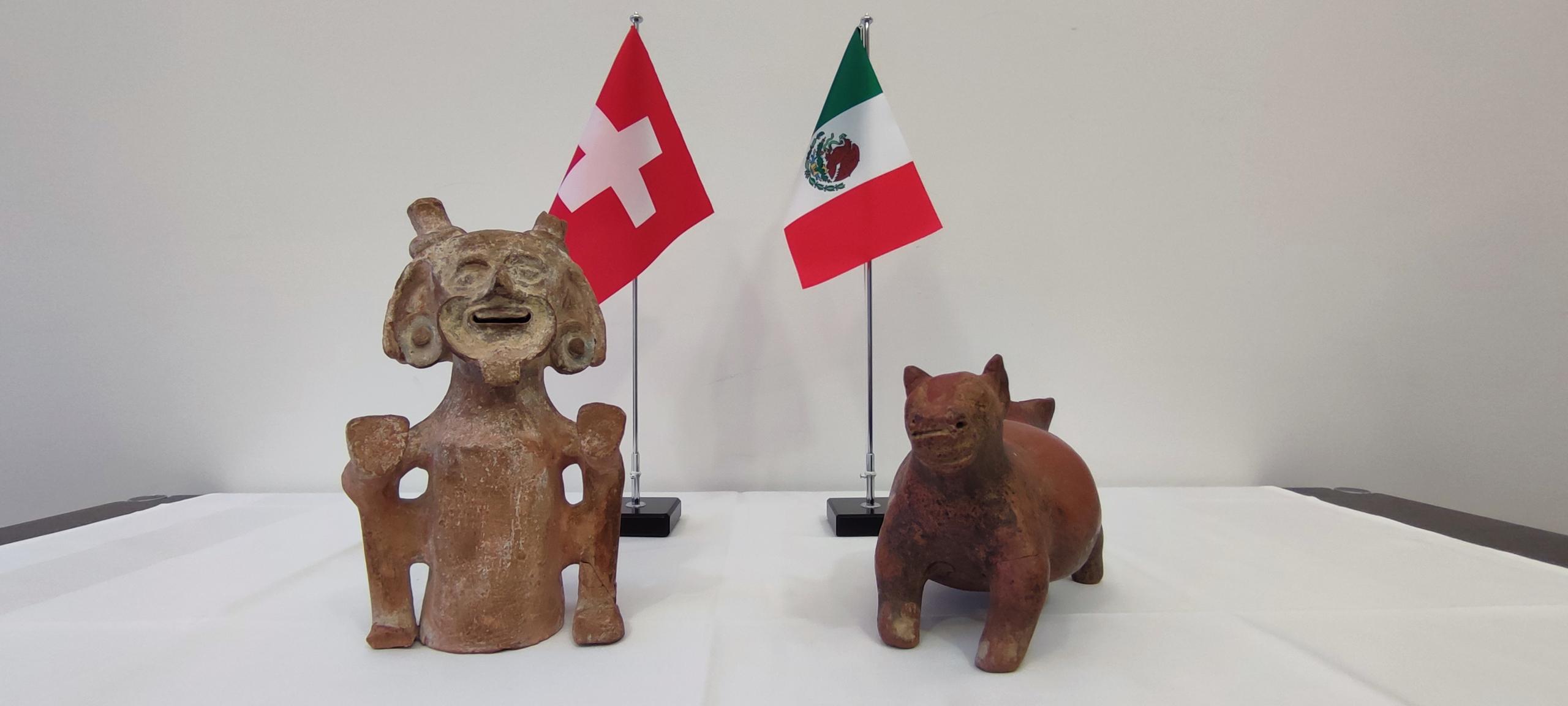
Switzerland returns confiscated cultural artefacts to Mexico

The Federal Office of Culture has handed over two archaeological cultural objects to Mexico that had been confiscated on suspicion of importing illegally excavated cultural goods.
One of the sculptures represents a pregnant female canine, which is thought to date back to 100BC-AD250, said Anne Weibel, spokesperson at the Federal Office of Culture. The second sculpture is a “clay incense burner that probably represents a seated deity” in the style of the pre-Colombian era from 1200-1521. Such objects are common burial offerings.
The two sculptures had been confiscated by the public prosecutor in canton Basel City owing to false declaration and suspicion of importing illegally excavated cultural goods. A criminal investigation was launched after local customs authorities in Basel carried out an inspection in July 2019, when the objects were imported from Canada. The artefacts were handed over to the cultural office to return to Mexico.
The restitution of the cultural objects, which took place at a ceremony at the Mexican embassy in Bern on Wednesday, was carried out under the framework of the Federal Act on the International Transfer of Cultural Property. This implements the 1970 UNESCO Convention on the Means of Prohibiting and Preventing the Illicit Import, Export and Transfer of Ownership of Cultural Property in Switzerland.
The Federal Office of Culture returns around four to five cultural goods a year, according to Weibel.

In compliance with the JTI standards
More: SWI swissinfo.ch certified by the Journalism Trust Initiative




























You can find an overview of ongoing debates with our journalists here . Please join us!
If you want to start a conversation about a topic raised in this article or want to report factual errors, email us at english@swissinfo.ch.